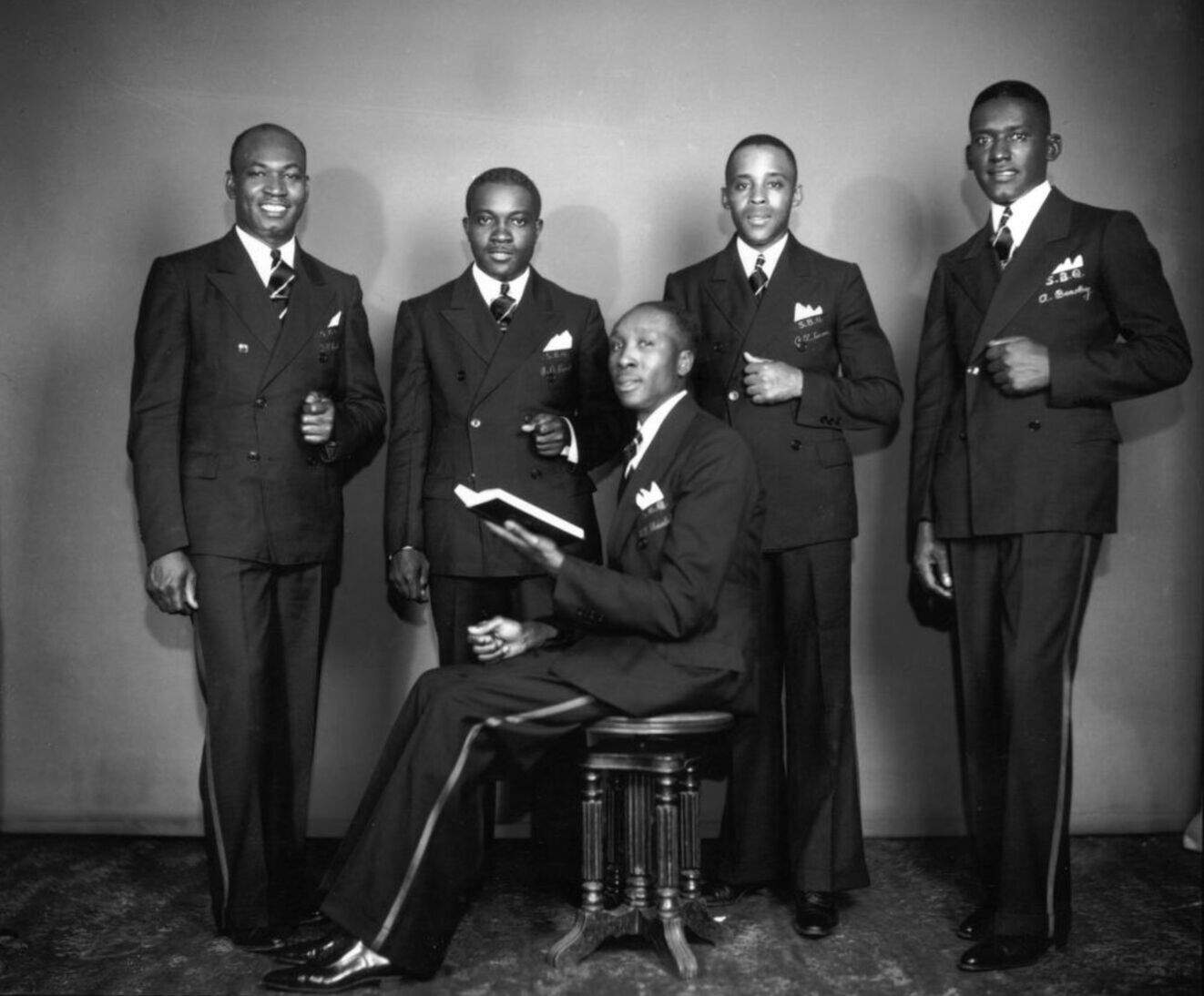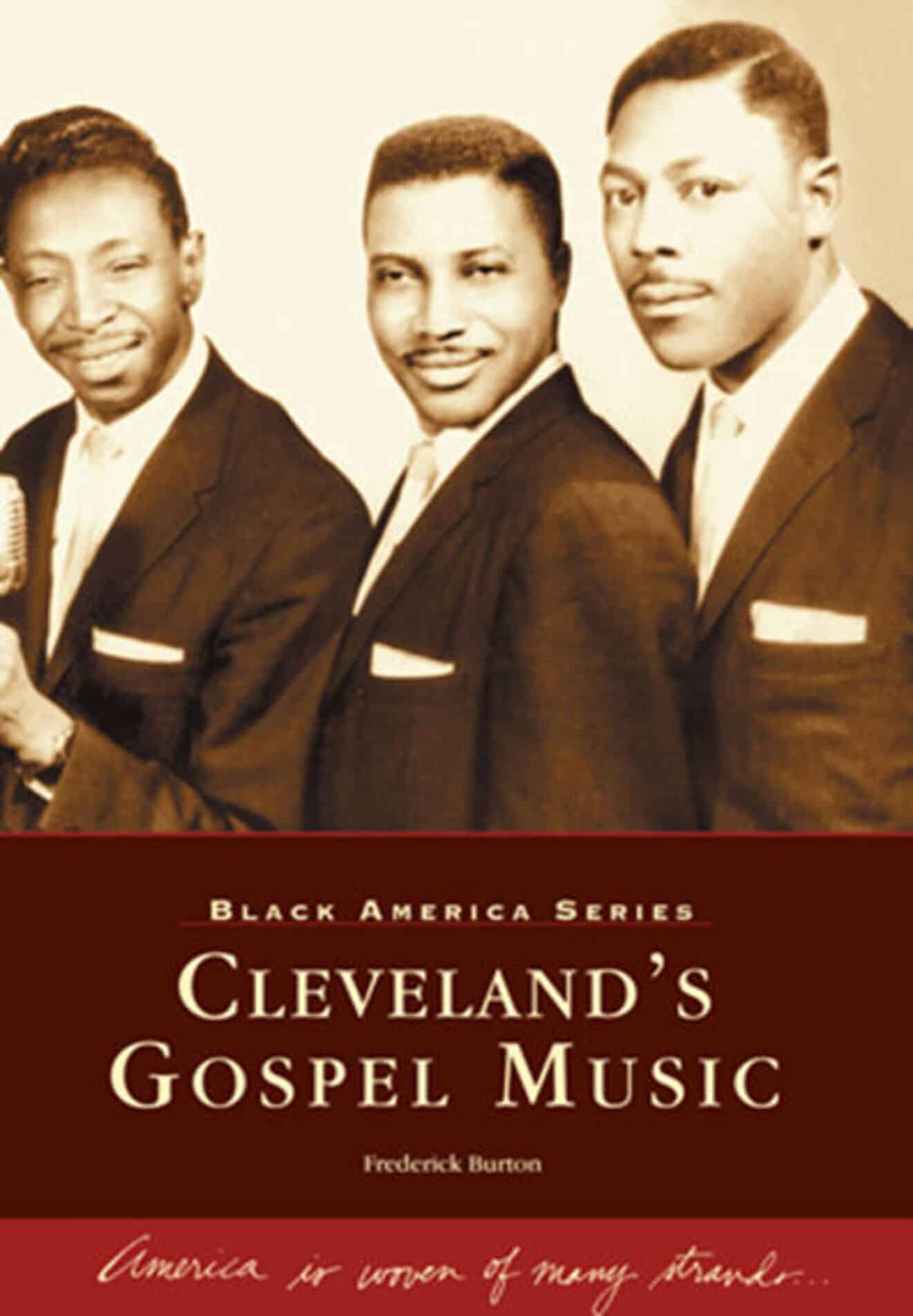In Post-World War I Era Cleveland, a popular destination for African American migrants from the South, gospel music became increasingly popular.

The Shields Brothers established their gospel quartet in 1928 and kept the group together for 70 years. (Photograph by Allen E. Cole; courtesy of Frederick Burton.)
This growing popularity was due in no small measure to the business acumen of people like Claude Shields Sr., quartet singer and owner of the Shields Brothers Cleaners on Cedar Avenue.
After the 1920s, quartet artists and their fans did not hesitate to participate in and promote live concerts, make studio recordings, and, in some instances, write books about gospel’s influence on other styles of American music, including Rock and Roll. Arthur Turner (second from the right in the above Shields Brothers photo), for example, also served as the long-time manager for Cleveland’s Elite Jewels, “The Gospel Songbirds of the North,” and one of the city’s most popular female quartets.

The cover of Frederick Burton’s Cleveland’s Gospel Music. (Arcadia Publishing, 2003)
Frederick Burton, whose family migrated to Cleveland from Tennessee in the 1960s, is the author of Cleveland’s Gospel Music (Arcadia, 2003) and founder of the Gospel Music Historical Society. In 2005, he and other artists participated in “Nearer My God to Thee,” during the Rock Hall’s tribute to Sam Cooke, a Mississippi native and migrant to Chicago. Cooke gained a national following as a member of the Soul Stirrers gospel quartet and as a solo artist.
In The Rise of Gospel Blues: The Music of Thomas A. Dorsey in the Urban Church (Oxford, 1992), Dr. Michael Harris suggests that Dorsey, a Georgia native and former pianist for blues legend Ma Rainey, was “The Father of Gospel Music.” Dorsey became director of music at Chicago’s Pilgrim Baptist Church in the 1920s and later founded the National Convention of Gospel Choirs and Choruses, which many Clevelanders still support today.